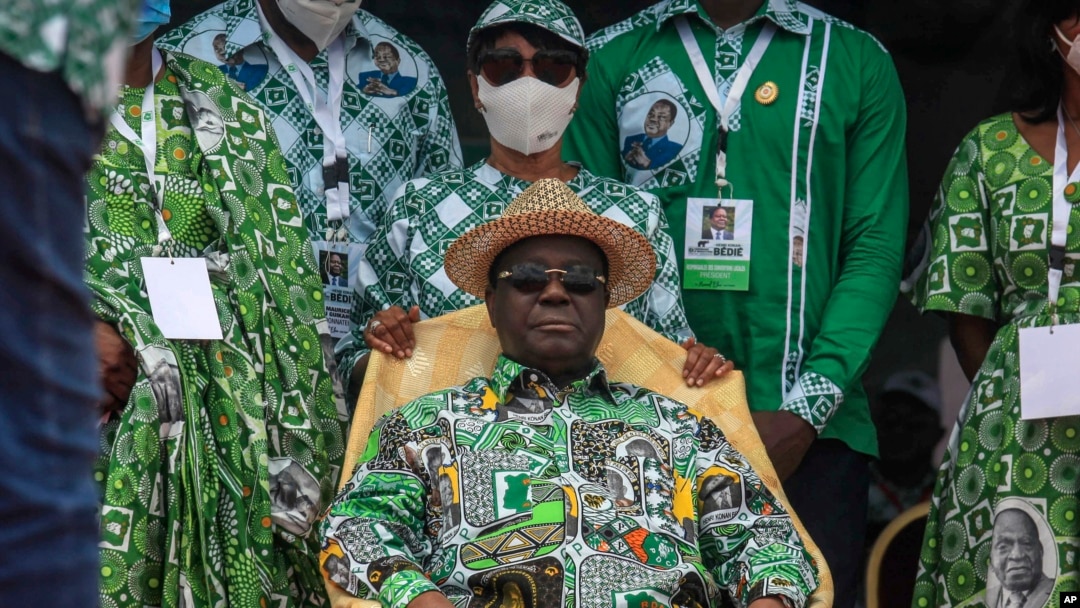The "Ivory Coast Democratic Party-African Democratic Rally (PDCI-RDA) is deeply saddened" to announce the "sudden death" of Bedie in hospital in Abidjan Tuesday, it said in a statement.
A crowd had begun to gather outside his residence in the capital, an AFP journalist said.
A career politician born in 1934 to a family of cocoa planters, Bedie was the chosen successor to Ivory Coast's founding father Felix Houphouet-Boigny, who ruled over the West African nation from independence from France in 1960 until his death in 1993, aged 88.
Bedie served as president from 1993 until 1999 when he was overthrown by the military in the country's first-ever coup.
Dubbed the "Sphinx of Daoukro" after his native town and economy with words, Bedie demonstrated a skill for political survival. He tried unsuccessfully to return as president in 2000, 2010 and 2020.
"For us in the PDCI, age is an asset. Age unites experience and also competence," Bedie told journalists ahead of the October 2020 presidential election, which was won by current President Alassane Ouattara amid an opposition boycott. Bedie came third with 1.7% of the vote.
Bedie, whose rivalry with Ouattara dates back three decades, had not ruled out running in the country's next presidential election in 2025.
Bedie's main influence on national politics had been to promote "Ivoirite" (Ivorian-ness) — the notion of a national identity and national economy in a country with dozens of ethnic groups.
The nationalist policy discriminated against immigrants in favor of people with two Ivorian parents, affecting countless workers on the country's cocoa plantations.
Bedie and other political leaders had tried to use the measure to prevent Ouattara, who was held to have a father from neighboring Burkina Faso, from running for president in 1995.
The measure was contrary to Houphouet-Boigny's sustained efforts to uphold unity, and played a part in the armed conflict and turmoil that erupted in 2000 and ended in 2011.
Bedie came third in the 2010 presidential elections, behind Ouattara and the incumbent Laurent Gbagbo.
He supported Ouattara in the post-election crisis, and for his first six years in power, but fell out with him again.
The wily octogenarian had been able to discourage all attempts by younger generations to replace him within his party, which had nominated him as its candidate for the 2020 ballot.
A party executive said he was "a fine tactician who weathered all storms" and was able to convince "the young guns" of the PDCI to support him again.


